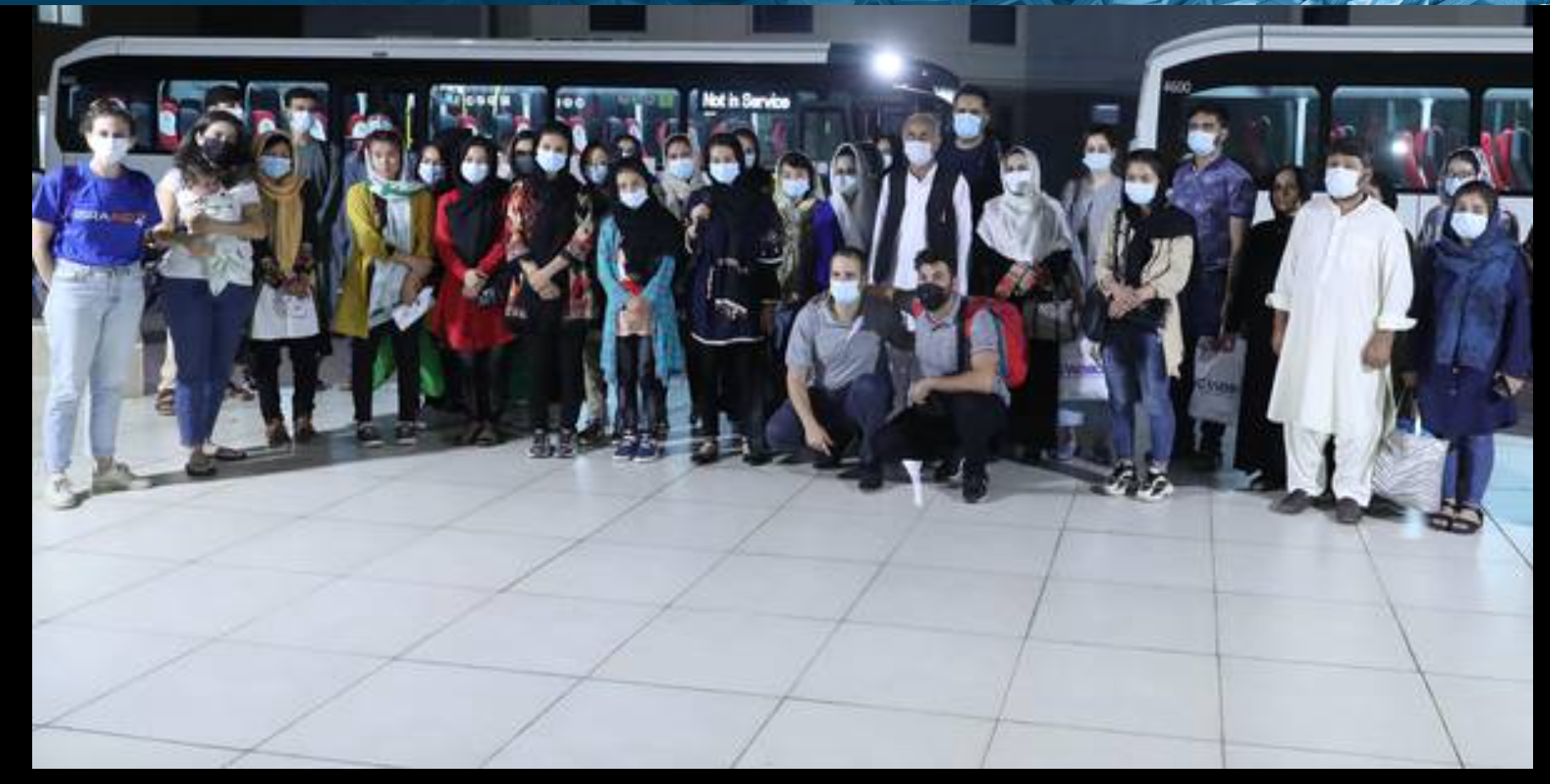They’ve kept it quiet for several weeks, but now, parts of the story are emerging about the involvement of the Jewish community in Canada in helping a group of 41 Afghan refugees including women cyclists, and their families flee the Taliban regime last week.
The 41 are now safe in a refugee holding centre in the United Arab Emirates, where they arrived on Labour Day, Sept. 6, after a “perilous” overland journey from Afghanistan, including crossing the northern border into neighbouring Tajikistan.
According to David Cooper, vice president of government relations for CIJA, the Centre for Israel and Jewish Affairs, the rescue was initiated and coordinated by IsraAID, the largest non-governmental relief organization in Israel, together with Canadian entrepreneur Sylvan Adams. Adams is a Montreal-born philanthropist now living in Israel and founder of the Israeli national cycling team, Israel Start-Up Nation.
“As everyone knows, the situation for women in Afghanistan right now is precarious in general and for women who were very active in their roles as women doing things publicly, even more,” Cooper said Wednesday from his Ottawa office.
Canadian guarantees
CIJA took to Twitter on Wednesday morning to publicize the news of the safe arrival of the women in Abu Dhabi:
How was CIJA involved? Cooper explained that Tajikistan and the UAE agreed to admit the group of 41 refugees temporarily, but only on the condition that a third country would guarantee to take them in permanently.
“It was very perilous. The situation at the border was very tense,” Cooper said. “The girls and women spent a few nights in safe houses just outside the Tajikistan border waiting to get these Canadian assurances, which ultimately came and they were able to exit out of Afghanistan into Tajikistan and ultimately to the UAE, where they are now awaiting processing by the Canadian government.”
The Afghanis will not arrive in Canada immediately, according to Cooper. It might be a few more weeks until their applications are processed. However, CIJA has already been in touch with Jewish settlement agencies, such as Agence Ometz in Montreal, and JIAS in Toronto, to help once they get here.
“So the [Jewish] federations are aware of this and are looking to help the agencies.The Jewish settlement agencies are looking to help. So there’s a lot of groups and individuals who are looking to help with this situation,” Cooper added.

Women in danger under Taliban
Even some Jewish lawyers working at Canadian law firms have offered to find employment for female Afghani jurists who may be coming out as part of the rescue mission, he said. There could be some in a subsequent group now thought to be making their way to Canada via the same escape route.
Since the Taliban recaptured of most of Afghanistan in August, female athletes, judges, journalists, and academics have been living in fear of seeing their freedoms vanish under restrictive Islamic law. One member of the country’s 220-strong women’s cycling community posted on social media recently that she had burned all her bicycling accessories and clothing, to avoid being punished for immodesty.
Women’s cycling flourished in Afghanistan since the Allies defeated the Taliban in 2001. In July of this year, Afghanistan sent its first cyclist to compete at the recent Tokyo Olympics, and she was a woman, Masomah Ali Zada. Ali Zada, 22, has been living in exile in France: she competed as a member of the IOC’s Olympic Refugee team in Japan.
“It’s a nice story. Look, as a Jew, it feels good to be helping these people. And it’s really a horrible situation. I mean, I can’t imagine being a woman living under the Taliban,” Cooper said.
Timeline of involvement
While the details of the rescue and Canada’s Jewish community’s involvement have been coming out only now, on the eve of Yom Kippur, negotiations to make it happen have been going on for weeks. Cooper said CIJA was contacted by IsraAID and has been dealing with the evacuation since Aug. 25 or 26, just after Justin Trudeau called the election.
“I’ll give credit to Marco Mendocino, our immigration minister. He was very happy to work with us on this. And we’ve been in almost daily contact in terms of trying to move this forward,” Cooper said. “In addition, in the UAE, we have a wonderful Canadian ambassador, Marcy Grossman, who is also now involved in this. And there’s a lot of people trying to do good here.”
There has been much criticism of Canada’s handling of the evacuation of its citizens from Afghanistan during the run up to the Aug. 31 deadline for the U.S. government to pull its forces out of the country. Prime Minister Trudeau promised to take in 20,000 Afghan refugees. A series of evacuation flights did airlift approximately 3,700 people out of Kabul, according to government figures. A statement from Mendicino’s office said approximately 3,000 had arrived in Canada by Sept. 3, and more were to come.
“The Government of Canada continues to use all avenues available to help Canadian citizens, permanent residents and their families, and vulnerable Afghans eligible under the special immigration measures, to leave Afghanistan and come to Canada. We thank neighbouring countries for their support in welcoming refugees and we continue to have daily discussions with allies and countries in the region to help get as many people to safety as possible,” the statement said.
Some Canadian journalists and members of the military have resorted to using their own resources to find and rescue Afghan citizens who worked on behalf of Canadian news outlets or NGOs. The Canadian Forces and other groups relied on fixers, drivers, interpreters and many other Afghanis during Canada’s military and development mission in Afghanistan between 2001 and 2014. According to Global News, there are still over 1,250 people with ties to Canada who have been left behind, including Canadian citizens and permanent residents, and their families.
